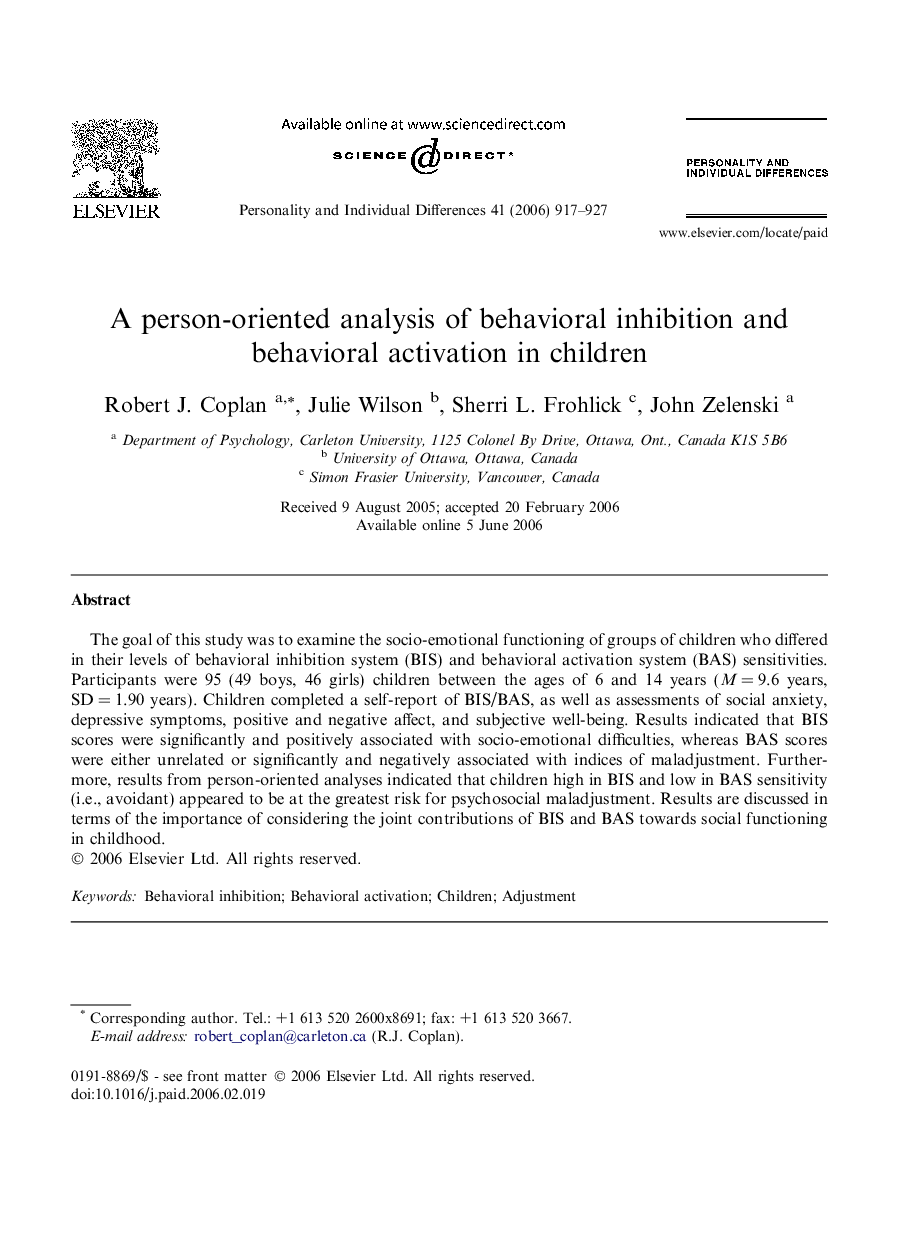| Article ID | Journal | Published Year | Pages | File Type |
|---|---|---|---|---|
| 893422 | Personality and Individual Differences | 2006 | 11 Pages |
The goal of this study was to examine the socio-emotional functioning of groups of children who differed in their levels of behavioral inhibition system (BIS) and behavioral activation system (BAS) sensitivities. Participants were 95 (49 boys, 46 girls) children between the ages of 6 and 14 years (M = 9.6 years, SD = 1.90 years). Children completed a self-report of BIS/BAS, as well as assessments of social anxiety, depressive symptoms, positive and negative affect, and subjective well-being. Results indicated that BIS scores were significantly and positively associated with socio-emotional difficulties, whereas BAS scores were either unrelated or significantly and negatively associated with indices of maladjustment. Furthermore, results from person-oriented analyses indicated that children high in BIS and low in BAS sensitivity (i.e., avoidant) appeared to be at the greatest risk for psychosocial maladjustment. Results are discussed in terms of the importance of considering the joint contributions of BIS and BAS towards social functioning in childhood.
